Periodontal Treatment
Often caused by poor oral hygiene, periodontitis can result in tooth loss and health problems that extend beyond the mouth.
The team at Elevate Dental provides experience-backed periodontal treatment, our goal is to catch gum infection early and stop it in its tracks.
30 Years
Experience
+8000
Happy Patients
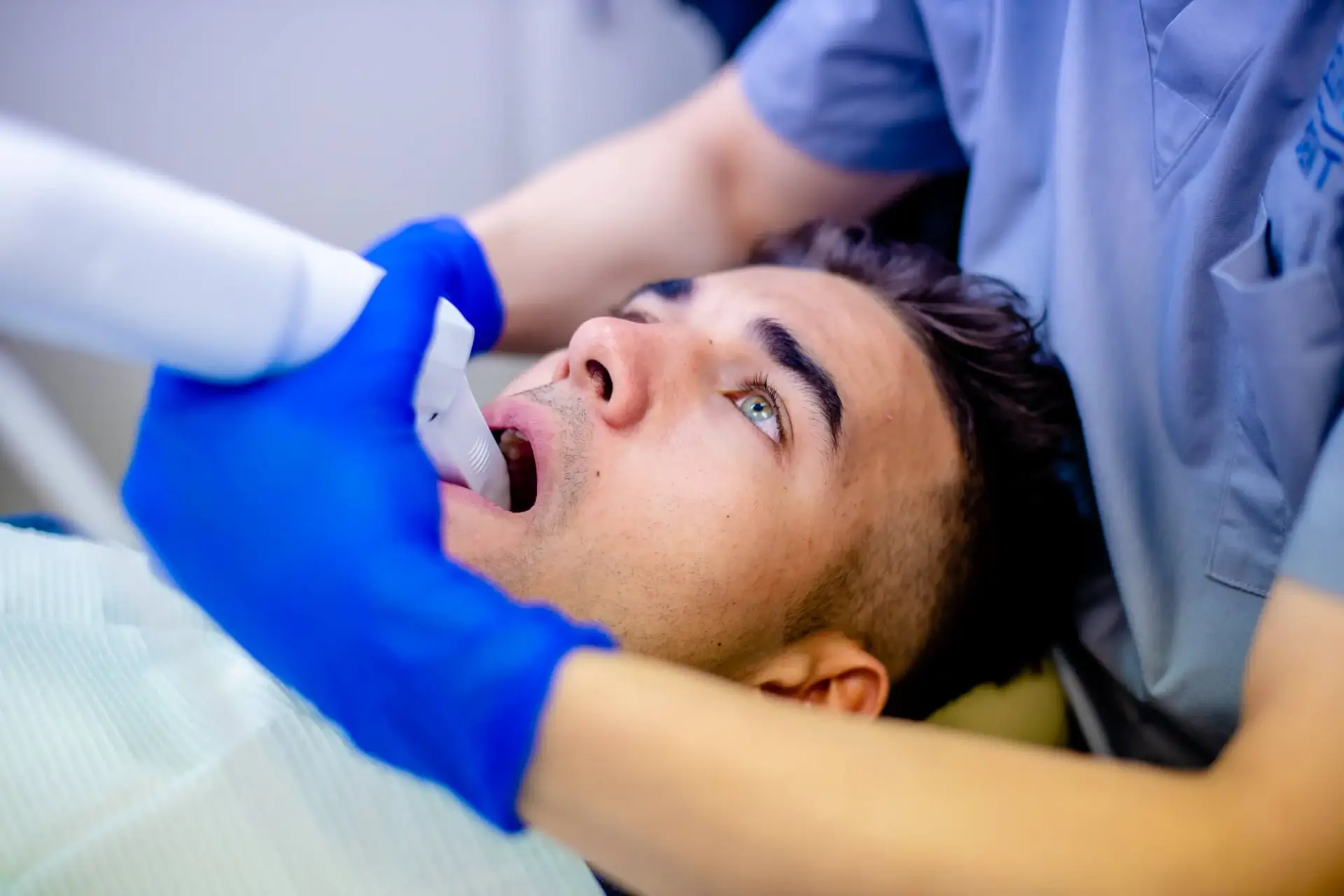
Periodontal Treatment Melbourne
Our Treatments
When we see gingivitis or the signs of periodontitis, there are several steps we can take to treat the disease, usually without surgery. Quite often the patient will inform us of the symptoms, but if not, our experienced team will discover the problem and discuss appropriate treatment options.
Antibiotics
Antibiotics are usually the first treatment for periodontitis. Your dentist may apply it topically or prescribe oral medication. A topical antibiotic may be in the form of a gel or mouthwash, while the oral is in pill or tablet form. In either case, these are commonly prescribed after the initial dental diagnosis and treatment to ensure all infection is eliminated.
Scaling
Scaling is an in-office procedure performed by dental professionals to remove bacteria and tartar from the teeth. Tartar is hardened plaque that cannot be removed with regular brushing and flossing. Using special instruments – such as an ultrasonic device – your dentist will be able to effectively remove tartar from your teeth and therefore reduce your risk of periodontitis.
Root planing
Root planing is a dental procedure that treats the root surfaces of your teeth. It removes bacteria, plaque, and tartar to discourage inflammation and prevent infection from spreading. Smoothing the roots helps the gums and surrounding tissues to heal and promotes optimal oral health.
Flap surgery
True to its name, flap surgery takes place when the gum is lifted. This allows your dentist to better clean the roots of your teeth to fully remove tartar build-ups in deep pockets. If necessary, the bone may be recontoured and the gum is then sutured back into place.
Soft tissue grafting
Soft tissue grafting is usually performed when gum loss occurs. This helps to repair and reinforce soft tissue so it can heal and better support your teeth while covering exposed roots. The soft tissue will be removed from one part of the body – likely the roof of the mouth – and re-attached to the area where the gum has receded.
Bone grafting
Bone grafting is performed if the bone surrounding the root of the tooth has been damaged. This procedure involves replacing the damaged bone with new bone, whether it be existing, donated or manufactured. The graft helps hold teeth in place while allowing a solid foundation for the regrowth of natural bone.



Our Success Stories

Emily B
“Amazing experience.. all the doctors, nurse and everyone else just amazing. Very friendly. Most of all my smile just so bright. I came for the Invisalign and oh my god I only need to use it for 4 months and my teeth look so amazing. Thank you for bringing my smile back.”
4.9/5 from 200+ Verified Reviews
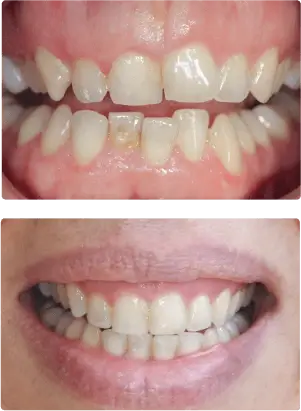
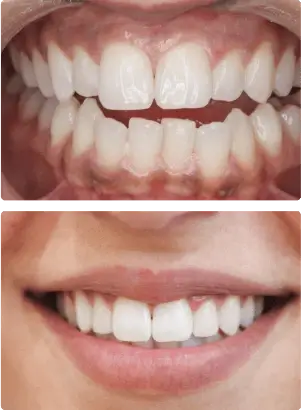
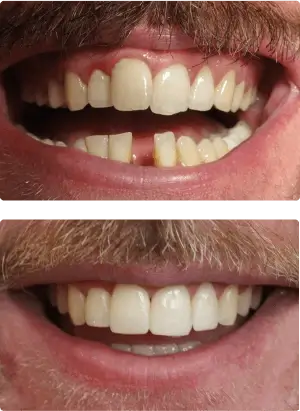
Book a consultation today and begin your journey towards a perfect smile with Elevate Dental
The Problem with Periodontitis
Everyone is prone to harmful bacteria that can affect the teeth. Sometimes pockets of bacteria can hide between teeth or in hidden gum areas and lead to an infection. If this infection spreads, it can lead to problems like bleeding and tooth loss. Below are some facts about periodontitis:
- Periodontitis stems from a build-up of bacteria and/or plaque on and around the teeth
- Gingivitis is a gum inflammation that often precedes periodontitis
- Smoking and vaping increase the risk of developing periodontitis
- Obesity is a risk factor of periodontitis
- People with diabetes are at a higher risk of getting periodontitis
- Gum disease can spread throughout the body and lead to heart disease if not treated
- Consistent oral hygiene is part of prevention and treatment
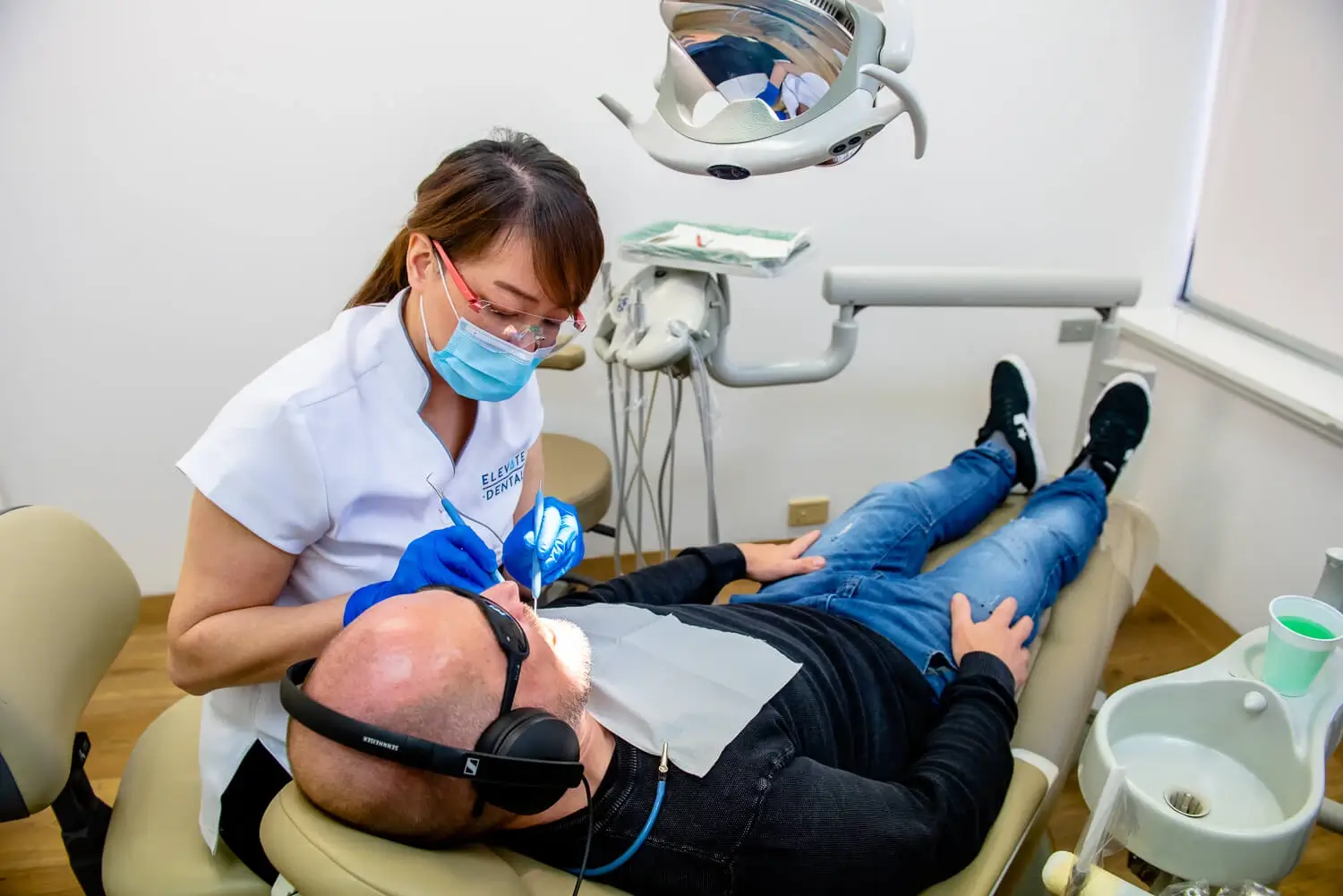
The Four Stages of Periodontitis
Sometimes people may not make it to the dentist for different reasons, like finances or location, resulting in a decline in oral health. If this sounds similar to your situation, there’s no need to worry! Our team at Elevate Dental is experienced in treating periodontitis and can help with any stage of the disease. Recognising the stages may motivate you to come in for treatment. These are the four stages:

Gingivitis
Gingivitis is the first, early stage of gum disease. It manifests in mild gum inflammation and sometimes bleeding of the gums when brushing. The gums may loosen from the teeth and develop tiny pockets of bacteria. This early stage may be reversed with proper oral care and hygiene and is reversible since no loss of jawbone has occurred.

Early Periodontitis
Early periodontitis is the next stage of disease with deeper pockets of infection. These form further below the gumline and can cause more severe gum separation from the teeth, along with more bleeding and bad breath. Early periodontitis results in mild bone damage or loss that may not need further treatment than the removal of infection, tartar and calculus.

Moderate Periodontitis
Moderate periodontitis is when the gums, bone and connective tissue are affected by the disease. At this stage, teeth begin to become loose or move due to the breakdown of connective tissue. Abscesses in the mouth may develop due to infection deep in the gum, and treatment may require repair or grafting of soft tissue along with professional teeth scaling and cleaning.
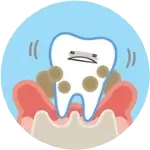
Advanced Periodontitis
Advanced periodontitis is a severe infection resulting in loose teeth and tooth loss. Along with severe bad breath, gum bleeding may occur even when not brushing as well as possible pus drainage from the gums. This may result in surgery using tissue grafting.
Make an Appointment
Ready to make an appointment or simply have a question?
Fill in our contact form below and you’ll receive a message to select a time and service type.


